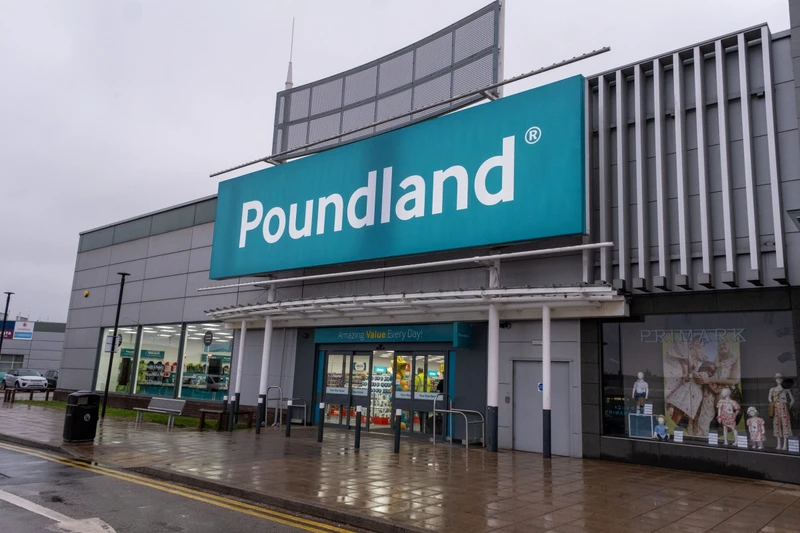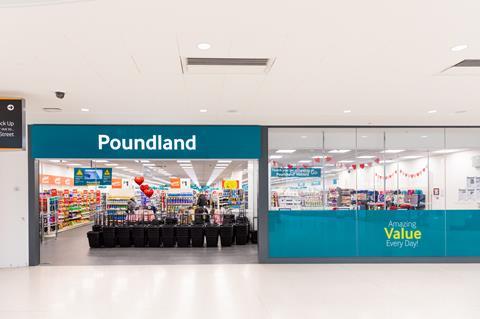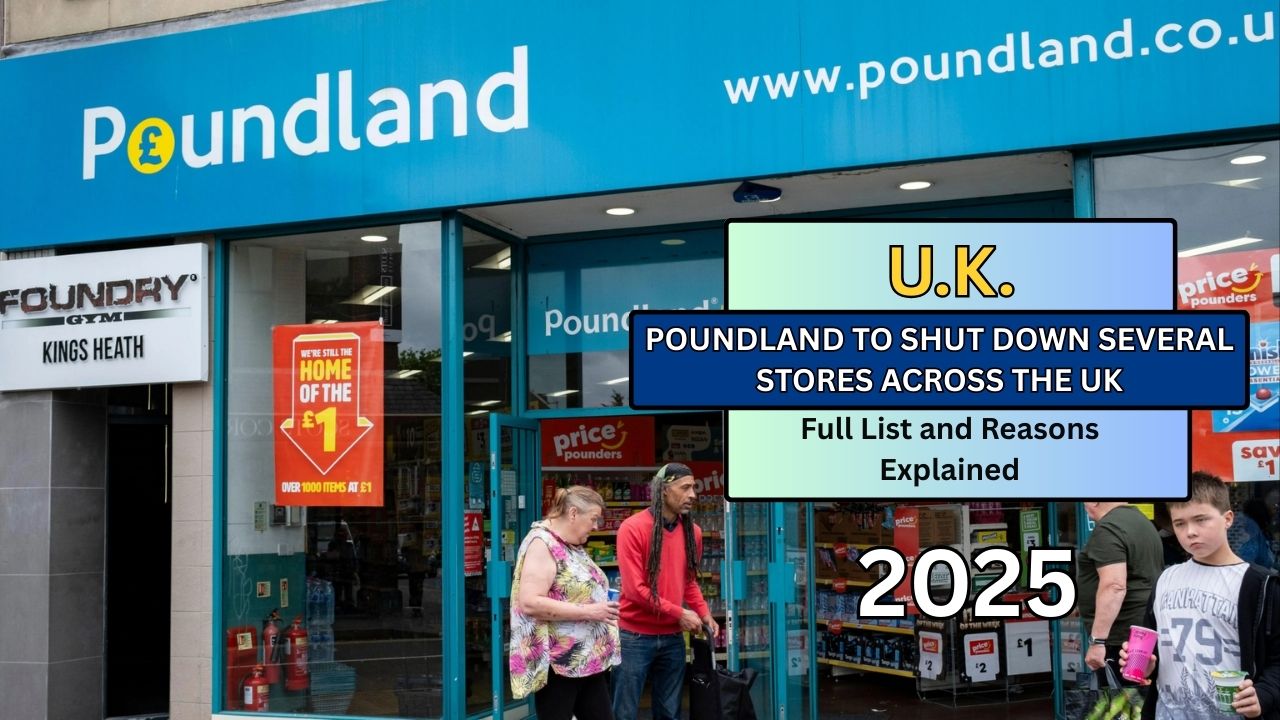Poundland, the popular discount retail chain, has announced the closure of several of its stores across the UK as part of a strategic review by its parent company, Pepco Group. This decision is primarily driven by ongoing financial challenges, including declining sales and rising operational costs. The closures will affect customers and employees alike, but the company is committed to supporting affected workers and providing alternatives where possible.
Store Closures Announced
The following Poundland stores are set to close in May 2025:
- Clapham Junction Railway Station, London: Closing on May 2
- Belle Vale Shopping Centre, Liverpool: Closing on May 6
- St George’s Centre, Gravesend, Kent: Closing on May 8
- Brackla, Wales: Closing on May 24
These stores are among a series of closures that have already taken place across the UK, including locations in Belfast, Maidenhead, Sutton Coldfield, and Macclesfield. The closures are a result of a combination of lease issues, financial struggles, and the shift in consumer behavior towards online shopping.

Reasons Behind the Closures
Pepco Group, which owns Poundland, has cited several factors contributing to the decision to close stores. Among the key reasons are:
- Weak Sales Performance: Sales have been particularly poor in the early months of 2025, with January and February showing a noticeable decline. This follows broader trends in the retail sector where many high street stores are struggling to maintain foot traffic.
- Rising Operating Costs: Poundland, like many other retailers, has been grappling with increasing operational expenses. This includes the higher National Insurance contributions for employers and wage increases mandated by the government.
- Lease Challenges: A number of Poundland’s locations have faced issues securing long-term leases, especially in certain shopping centers and high-rent areas. These challenges have made it financially unsustainable to keep some of the stores open.
- Financial Losses: In its most recent financial report, Poundland revealed a significant loss of £641 million in the year ending September 2024. This loss has forced the company to reassess its operations and streamline its store network.
A Strategic Review and Potential Sale
Pepco Group is actively considering various strategic options to address these financial pressures. This includes a potential sale of Poundland’s 825 UK stores. The company has enlisted advisory firm Teneo to explore the best options moving forward, including selling the brand entirely or focusing on more profitable European markets. This move is part of a broader effort to optimize store locations and improve the company’s financial health.
Poundland has stated that these closures are part of efforts to make the business more sustainable in the long term. The company is working to streamline operations and ensure that its remaining stores are positioned in areas with better growth potential.
Impact on Customers and Employees
For customers, the store closures mean less access to the affordable products that Poundland has become known for. However, the company has emphasized that it remains committed to its loyal customers. Affected customers are encouraged to visit nearby Poundland locations, with stores like the Southside Shopping Centre in Wandsworth continuing to operate.
In addition, Poundland is taking steps to support employees impacted by the closures. The company is working to find new roles for affected workers at nearby stores or within other parts of the business. While store closures are never easy, Poundland has promised to assist its staff through this transition.
The Gravesend store, which is one of the locations slated for closure, is currently holding a 50% off closing down sale. This offers a last chance for local customers to pick up discounted items before the store shuts its doors.
Broader Context in Retail
The Poundland closures are part of a wider trend in the UK retail sector. According to the British Retail Consortium, the retail sector is facing significant challenges, including rising costs due to new employer taxes, changing consumer habits, and the ongoing growth of online shopping. These factors have contributed to the growing number of high street store closures across the country.
Retail analysts have warned that high street retailers, particularly those with a heavy reliance on physical stores, will continue to face difficult times as the shift toward online shopping accelerates. At the same time, the increasing costs of doing business in the UK, including rising energy prices and wages, have further strained many retailers’ bottom lines.

Looking Ahead
As Poundland moves forward, it will continue to focus on maximizing the potential of its remaining stores while addressing the challenges it faces in the UK. The outcome of the strategic review and the possible sale of the business will play a significant role in determining the future of the Poundland brand. For now, the company is focused on making the necessary changes to adapt to the evolving retail landscape.
Conclusion
The announcement of Poundland’s store closures marks a significant moment for the UK retail sector. While these closures are disappointing for customers and employees, they are part of a necessary adjustment to ensure the company’s long-term survival. With the retail sector in a state of flux, it remains to be seen how Poundland’s parent company, Pepco Group, will navigate these challenges.
This article has been carefully fact-checked by our editorial team to ensure accuracy and eliminate any misleading information. We are committed to maintaining the highest standards of integrity in our content.

Deepak Grover is a dedicated content writer at OTE News, specializing in government affairs, public policy, and current events. With a keen eye for detail and a passion for factual reporting, he ensures readers receive accurate and insightful news. Deepak holds a degree in Political Science and has experience in research-driven journalism.
When not writing, he enjoys reading historical books, exploring hiking trails, and staying updated with global political trends. His commitment to ethical journalism makes him a trusted voice at OTE News.




